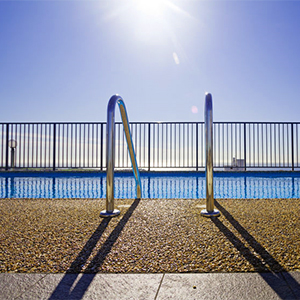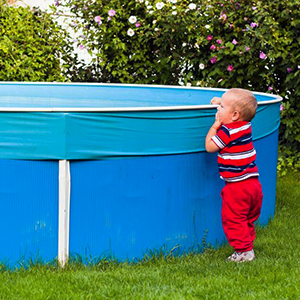Posts Tagged ‘“premises liability lawyers”’
Essential Safety Tips for Massachusetts Homeowners with Backyard Swimming Pools
 Over the past year, many of us have missed out on seeing friends and loved ones. If you are planning a summer gathering to make up for lost time, we urge you to consider water safety, especially if you own a backyard swimming pool.
Over the past year, many of us have missed out on seeing friends and loved ones. If you are planning a summer gathering to make up for lost time, we urge you to consider water safety, especially if you own a backyard swimming pool.
With Massachusetts schools about to start summer break, there is a high level of distraction in many homes. Households may have family members working remotely and summer may add to the unpredictable schedules we established during the COVID-19 emergency. But you must be vigilant if you own a pool because the risk for injury is very real. One can drown quickly, in a matter of seconds, and those injured are often young children.
According to the Consumer Product Safety Commission (CPSC), an average of 397 children were killed in swimming pool or spa submersions each year from 2016 to 2018. These children were all under 15 years old. During the same period, there was also an annual average of 6,200 children under 15 treated at hospitals for non-fatal injuries associated with pool or spa submersions.
Already in Massachusetts this year, we have seen several lives lost or nearly lost to drownings in swimming pools, ponds and lakes. In this blog, we focus on how homeowners can reduce the risk for injury and drowning in backyard swimming pools, and their legal responsibilities.
Massachusetts Property Owners Have a Duty to Use Reasonable Care
In Massachusetts, homeowners have a responsibility to use reasonable care to keep their property in reasonably safe condition. When it comes to swimming pools, a property owner’s duty starts with following Massachusetts building regulations to secure pools. They must also maintain safe areas around pools.
It is paramount that Massachusetts homeowners also exercise caution with alcohol. Homeowners can reduce the risk for many drownings and injuries by simply limiting their own alcohol consumption and that of all their guests of legal drinking age. Minors should never be allowed to consume alcohol or a homeowner can face criminal charges and a civil lawsuit if someone is injured.
Secure Your Swimming Pool With Strong Fencing

In Massachusetts, the state building code requires property owners to secure swimming pools behind 4-foot high fencing. There are different specifications for above-ground and underground pools, along with pools that use one side of the home as part of the fence.
Pools must be secured with locking devices that face outward away from the pool. The locks must be self-closing and self-latching.
Keep Pool Areas Free From Hazards
Be aware of other potential hazards beyond your actual pool. Your pool area may have outdoor furniture, rafts and floats, a diving board or a slide. One way to prevent a pool-related injury is to limit pool accessories. Secure the products you buy out of sight when you are not using your pool.
We caution you about purchasing diving boards and slides. Accidents involving these products can be serious, resulting in a head injury or a spinal cord injury, which can lead to long-term disability or death. Many homeowners have decided these are just not worth the potential safety risk.
Recognize that these products can be poorly designed or incorrectly installed. A product may not be the right fit for your pool design or reliably support your guests, even if it meets CPSC safety standards. However, if you choose to make a purchase, you should always hire an experienced pool professional to assist you with installation and your homeowner’s insurance agent to make sure your policy provides coverage.
Protect Young Children
 In Massachusetts, property owners are responsible for securing pools from young children. Property owners can be held liable for drowning or other injuries suffered by young children, whether they are invited guests or are trespassing. The law recognizes that young children may not understand when they approach a potential hazard. As a property owner, think about how your pool looks from the street, from your yard and from inside your home. Bright-colored rafts and large crowds can quickly capture a child’s attention. Then think about how you have secured your pool.
In Massachusetts, property owners are responsible for securing pools from young children. Property owners can be held liable for drowning or other injuries suffered by young children, whether they are invited guests or are trespassing. The law recognizes that young children may not understand when they approach a potential hazard. As a property owner, think about how your pool looks from the street, from your yard and from inside your home. Bright-colored rafts and large crowds can quickly capture a child’s attention. Then think about how you have secured your pool.
Keep Gatherings Small
When you invite guests over, keep gatherings small so you can observe the pool area and enjoy the company.
Closely Monitor Guests Near Your Swimming Pool
Never invite anyone over to your home to use your swimming pool when you are not there or are engaged in another activity, such as work. Ask if adult guests know how to swim and if children have attended swimming lessons.
If you have young children, commit to watch them and any friends they invite over closely, even if they are not using your pool. Limit the size of gatherings so you can give the children your full attention.
Make the same commitment to safety if you are the parent of a teenager, even if you normally give them more freedom. Set summer rules and make sure your teen understands: they can only have friends over when you are home and gatherings should be kept small. They should always ask before using the swimming pool and you will not permit alcohol.
Whenever you have any guests over, check that your pool is fully secured before they arrive. Not just from outside, but also from guests and children in your home and backyard. Once your guests arrive, it can help to utilize a pool camera, sounding alarm or other technology, even if no one is using the pool. You can also take the low-tech approach of sitting outside where you can see both the pool and the gate. This step shows your guests and children you are truly committed to safety and want them to have fun, but also act responsibly so everyone gets home safely.
Restrict Alcohol Consumption by Your Guests; Never Allow Teens to Drink At Your Home
 Carefully consider whether you want to allow your guests to consume alcohol in your home, especially when they come over to swim or are driving. This decision comes with a lot of responsibility. The easiest approach is to not allow alcohol consumption. If you do allow your guests to drink, practice moderation and good judgment. Never let them drive home under the influence.
Carefully consider whether you want to allow your guests to consume alcohol in your home, especially when they come over to swim or are driving. This decision comes with a lot of responsibility. The easiest approach is to not allow alcohol consumption. If you do allow your guests to drink, practice moderation and good judgment. Never let them drive home under the influence.
As for swimming, remember that alcohol and pools are a dangerous combination. According to the Centers for Disease Control and Prevention, alcohol use is involved in up to 70 percent of deaths associated with all water recreation. Drinking beer or liquor in the warm weather can contribute to dehydration, which can raise the risk for drowning and submersion injuries.
Massachusetts recognizes social host liability. There can be serious consequences for bad decisions. Homeowners can face criminal charges, including jail time, if they allow minors under 21 to consume alcohol at their home or any property they control, under M.G.L. c. 138 § 34 . Parents can also be criminally charged and convicted if police can prove they left their home and were aware minors were consuming alcohol there in their absence. Minors can also be criminally charged.
In addition to criminal charges, a homeowner can also face a civil lawsuit from those injured as a result of a minor’s alcohol consumption at their home.
Limit Cell Phone Use and Distractions
One can easily become distracted by an email, text or social media and this can be dangerous if you have a pool. If you are checking your cell phone, you could miss the moment someone needs your help. Every second counts when it comes to saving someone from drowning. The best approach is to limit cell phone use and enjoy your guests. Keep both your home and cell phone nearby, but for emergencies only.
Free Legal Consultation – Boston Personal Injury Attorneys
At Breakstone, White & Gluck, our attorneys provide aggressive representation and are committed to achieving the best result for clients. Founded in 1992, our personal injury law firm specializes in representing those injured by the negligence or wrongdoing of others and our attorneys have been consistently recognized by Super Lawyers and Best Lawyers in America. We have won numerous record-setting verdicts and settlements in negligence, product liability and medical malpractice cases in Massachusetts. We offer safety tips as part of our Project KidSafe campaign, through which we work to prevent injuries to children and families.
If you or a family member has been injured, learn your legal rights. We represent clients across Massachusetts, including in Boston, Cambridge, Somerville, Quincy, the North and South Shores, Cape Cod, Worcester and Central Massachusetts. For a free legal consultation, contact one of our Boston personal injury lawyers at 800-379-1244 or 617-723-7676 or use our contact form.
Massachusetts Superior Court Judge Questions Long-Standing “Transitory Water” Doctrine
 For decades, the Massachusetts courts have adhered to the “transitory water doctrine.” Simply put, under this common law standard, Massachusetts property owners have generally been shielded from liability in slip and fall cases when an injury results from normal use in wet weather. For example, a customer who wears boots in the snow and tracks water into a store, causing another customer to slip.
For decades, the Massachusetts courts have adhered to the “transitory water doctrine.” Simply put, under this common law standard, Massachusetts property owners have generally been shielded from liability in slip and fall cases when an injury results from normal use in wet weather. For example, a customer who wears boots in the snow and tracks water into a store, causing another customer to slip.
Established more than 40 years ago, the transitory water doctrine has set the legal standard for property owners. With no incentive to avoid liability, large commercial property owners were virtually free from worries about injuries caused by water tracked in from outside. Make no mistake: many people have been badly hurt right after crossing the threshold of a store, where the water and grime are most concentrated.
But this may change, after a recent ruling by Superior Court Judge Cornelius J. Moriarty II.
Judge Moriarty recently ruled in Holden v. Wal-Mart Stores East, LLP. In February 2016, the plaintiff alleged she stepped into the Wal-Mart in Hanover and slipped on water that had accumulated on the floor. The spot where she slipped was between the door and a mat, which would have prevented the fall, but which was located a few feet from the doorway.
Wal-Mart argued the transitory water doctrine barred the plaintiff’s claim and moved for summary judgment. But Judge Moriarty denied this motion, writing that the transitory water doctrine can no longer be considered good law after the Supreme Judicial Court’s 2010 ruling in Papadopoulos vs. Target Corporation, 457 Mass. 368 (2010).
“Whether Wal-Mart made reasonable efforts to protect the plaintiff against the danger is for the jury to determine,” Moriarty wrote. The judge reasoned that Massachusetts law is moving towards a unified standard or reasonable care for property owners, and that old common law exceptions are being eliminated.
In 2010, the Supreme Judicial Court of Massachusetts abolished the century-old double standard governing who could bring claims for injuries resulting from slips and falls on snow and ice. Now, property owners have a responsibility to use reasonable care in clearing snow and ice.
Prior to Papadopoulos, Massachusetts law distinguished between injuries suffered by falls on “natural” and “unnatural” accumulations of snow and ice. Previously, a property owner was not liable for injuries caused by slip and falls on natural accumulations, so property owners had no legal incentive to clear snow in some cases. But property owners could be held liable if someone was injured by an “unnatural” accumulation, such as snow dropped by a plow or ice from a leaking gutter.
The Holden case is not yet resolved. If the case does result in a verdict against Wal-Mart, then Wal-Mart will have the option of appealing the summary judgment decision.
We believe that this is a sensible decision by Judge Moriarty, and that a uniform standard of reasonable care under all circumstances for property owners will lead to greater safety and fewer personal injuries.
Free Legal Consultation: Breakstone, White & Gluck
With more than 100 years combined experience, Breakstone, White & Gluck specializes in personal injury and medical malpractice cases in Boston and across Massachusetts. For a free legal consultation with our attorneys, contact us at 800-379-1244 or 617-723-7676 or use our contact form.
Property Owners Must Observe Snow Removal Ordinances and Recent Court Decision This Winter
Months after a landmark court ruling regarding snow and ice removal in Massachusetts, the city of Newton is considering a sidewalk snow removal ordinance.
The city initially proposed an ordinance requiring snow be cleared within 24 hours of a storm. Residents protested and city officials have proposed another ordinance allowing 30 hours. Businesses would still have 24 hours. The proposal is pending.
Many municipalities have ordinances requiring residents to keep their sidewalks clear to avoid snow and ice accidents. In Boston, renters, property owners and management companies of residential buildings with less than six units have six hours. Commercial property owners, renters and management companies have three hours, as do managers and owners of residential properties with more than six units.
Other communities provide larger windows of time. Springfield allows residential property owners and renters 24 hours while Worcester permits 10.
These ordinances are designed to protect the public on sidewalks. But property owners have a responsibility to keep their entire property safe after the Supreme Judicial Court’s decision in Papadopoulos v. Target Corporation, SJC-10529 (July 26, 2010).
Prior to the decision, property owners were liable for injuries sustained on what is known as an “unnatural accumulation” of snow or ice, such as a snow plow pushing snow onto a driveway. Now, property owners are liable for injuries resulting from natural accumulations as well, meaning they have a responsibility to keep their property reasonably safe and free from snow and ice after a storm.
If you are a property owner, this means you want to consider how you can prevent snow and ice accidents on your property this winter. Here are a few tips:
- You have a responsibility to clear your driveway, sidewalks and other areas accessible to the public.
- If you are using a snow blower, keep a shovel on hand as a back-up.
- Stock up on salt and use it regularly throughout a storm and in the hours afterward, when a large amount of freezing occurs.
- Walk your property after the snow falls. If you cannot move across it safely, others will be at risk.
- Ask yourself if you can handle your own snow removal. If not, contact a snow plowing company.
For more information about your obligations as a property owner, visit the Breakstone, White & Gluck website.
Click here to read about the city of Newton’s proposed snow removal ordinance.
Read More



